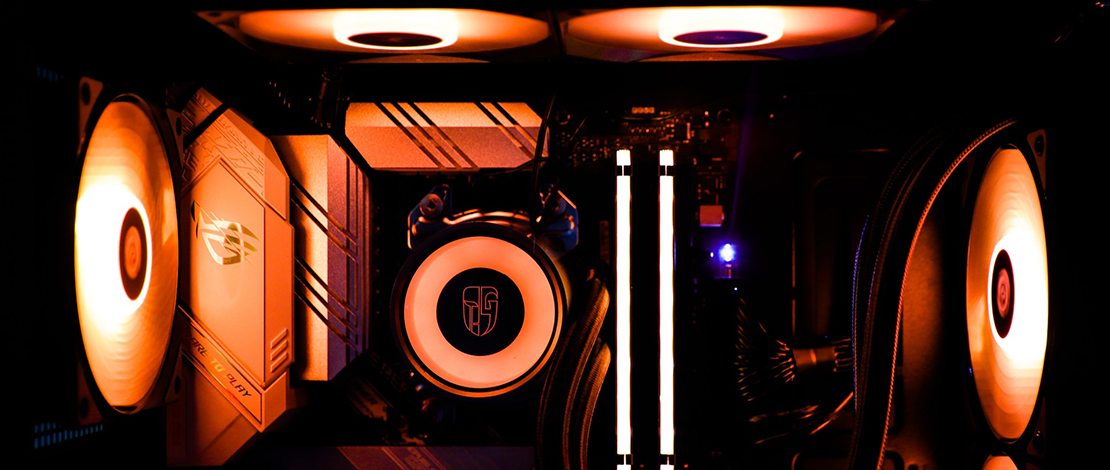Liquid Cooling vs Air Cooling – TL;DR

The debate between liquid coolers and air coolers is as old as liquid cooling became a thing and there are a lot of misconceptions and misunderstandings when it comes to which type of CPU cooling solution you should use. The main point of this article is to quickly point out which cooling solution is better at what and help you make an informed decision.
Liquid Cooling: Pros and Cons
If you are testing a good liquid cooler vs a good air cooler in most cases the liquid cooler will be a couple of degrees better or in the absolute worst-case scenario it will be about the same for both. In absolutely perfect conditions with the best possible cooling solutions then liquid coolers are a better choice.
This advice applies to 240mm+ liquid coolers as 120mm/140mm liquid coolers are usually overpriced and deliver garbage-tier performance compared to a basic air cooler that can be had for a lower price. In general buying a cheap AIO means you will deal with leaking and pump failures and that will ruin your experience. This situation is not to be extended for all liquid coolers because decent models are rated for 5-6 years of use without any issues.
There are of course failures when it comes to liquid coolers but those are quite rare. The failure rate of liquid coolers is indeed higher than that of air coolers but that is still a minuscule percentage in the grand scheme of things.
Failure also does not mean catastrophic damage as many think, since the most common failure point is the pump dying resulting in a dead AIO/loop. The chances of something exploding and spilling water all over your PC are (almost) non-existent.
In short, considering that water cooling takes longer to heat up and can dissipate more heat if you are building a top-end system this is the best solution for you.
Air Cooling: Pros and Cons
Air cooling is the basic solution for keeping your CPU working properly and is still quite popular for a reason. Air coolers are generally cheaper than liquid cooling solutions, offer decent performance, and have very limited points of failure compared to liquid cooling counterparts.
If an air cooler has a good base plate, decent fans, and a good heatsink it can do its job well. For liquid cooling, you have to think of your pump, radiator, the quality of the liquid used, permeation, corrosion, etc. In short, with air coolers, you can install the tower once and forget about it for the next 4-5 years when you decide to upgrade your system.
The downside of air coolers is that for good heat dissipation, they need a big heatsink resulting in more space being occupied. Good air coolers can also become pretty expensive and creep into the 240mm AIO price range.
In short, air coolers are generally cheaper and are insanely reliable with the major failure point being their fans. Paying 10$ to swap a fan in 5 years sounds like a good deal compared to swapping an entire water cooling solution.
TL;DR
Water cooling: Pros
- Has better cooling capacity
- Reliable with extremely rare cases of catastrophic failure
- 5-6 years of work time expected
- Less space wasted compared to big air coolers
Water cooling: Cons
- Is more expensive
- More failure points (pump, permeation, corrosion, etc)
- Less work time compared to an air cooler
Air cooling: Pros
- Limited points of failure
- Is cheaper
- In certain conditions can match the cooling capacity of water coolers
- Can be used between multiple builds for multiple years
- No chances of critical failures ( if fans stop spinning you can replace them for cheap)
Air cooling: Cons
- Big air coolers take up a lot more space
- Prices for high-end air coolers match water cooling solutions
- Might not look as cool as AIOs